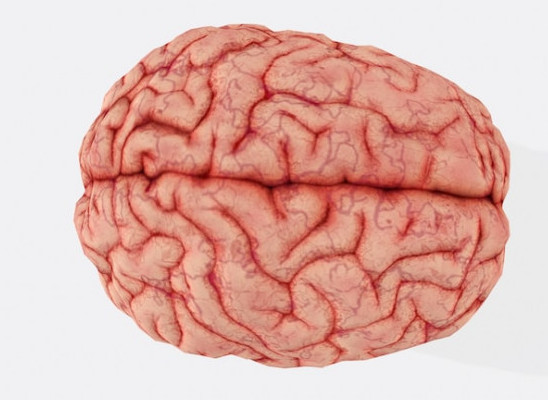Tips to Stress Management: Simple Ways to Improve Daily Mental Wellness
Stress is a normal part of everyday life. Sometimes personal experiences drive us into very stressful situations which can affect our physical and mental well-being. Here are some tips to stress management that may give you tools to handle the stresses of everyday life.
Be Analytical and Determine Where Your Stress Comes From.
Does your stress come from work? Is it a personal relationship with someone that is stressing you out? Maybe it’s something simple like a change in your environment or an unexpected change in your circumstances. To deal effectively with stress, determine its source and develop a plan to deal with it.
Stress affects different people in different ways. What may be a minor irritation to one person may be a big event to someone else. Only you can diagnose what may be an overly stressful issue for your personal mental wellness.
A health condition or a major life-changing event can be a major source of stress. For major events such as these, it can be healthful to talk to a trusted adviser, such as a doctor or counselor, or spiritual adviser, such as a minister. Don’t let personal stress around events like these fester inside you; it only makes matters worse.
Here’s a little transparency: Our website contains affiliate links. This means if you click and make a purchase, we may receive a small commission. Don’t worry, there’s no extra cost to you. It’s a simple way you can support our mission to bring you quality content.”
Regular daily stress is a different matter. Little bits of stress from your daily activities can build up into major stress if you don’t deal with it. Some techniques for relieving stress can make your life more pleasing and bearable.
Get Rid of Harmful Habits and Develop Positive Reinforcing Ones.
When I talk about harmful habits, I mean habits that can decrease one’s physical or mental wellness. When one thinks about health in general, one wants to emphasize what helps them and tries to eliminate what hurts them.
I am really working on eliminating my one harmful habit: eating unhealthy foods. By controlling what I put into my mouth, I promote my own wellness.
Some other harmful habits may include things such as smoking, drinking alcohol excessively, spreading yourself too thin with too many projects at a time, obsessing about anything too much, or items that are a tic such as biting your nails, picking at your nose, or skin, and others. Examine those nasty habits you want to get rid of to improve your wellness.
Now, let’s talk about reinforcing habits that are good for reducing your stress. Exercise is a good habit that improves both physical and mental wellness. Aerobic exercises such as walking, running, or any other activities that get your heart pumping or blood moving are great habits for dealing with stress.
Yoga, meditation, and deep breathing are good habits that specifically deal with stress. Find what relieves your stress the best and focus on making it a regular habit. Getting rid of stresses when they are small can boost your mental wellness.
Being involved in a favorite hobby or activity can get your endorphins flowing. Being involved in my favorite computer game or a word game like Scrabble gets my mental processes going and gives me great satisfaction.
Build a Support Team for Your Daily Mental Wellness.
Friends, family, and professionals can provide a great support team to help you deal with stress. Instead of keeping things in, having an outlet to vent can be an effective method of dealing with stress.
Friends are a vital part of what I call “social wellness.” Everyone has different social circles of friends with whom they associate. Examples may be church friends, friends who share your favorite activities, or close friends with whom you share your thoughts and ideas.
Family can be a mixed bag, but it provides a unique support system that cannot be ignored. Often, families share unique experiences that no one else can relate to. Sometimes, family can be a source of bitterness and regret, but keep in mind that life is not perfect, and neither are all of our experiences.
Sometimes, sharing sources of stress with professionals can be helpful. A mental health professional can help deal with issues such as depression, anxiety, or others. A pastor or other spiritual adviser can help you deal with those issues you struggle with as a part of your moral compass or relationship issues with others.
Find Your Favorite Hobbies and Activities and Endeavor to Give Time to Them.
When I think of hobbies, the word fun comes to mind. Spending time on the beach, listening to your favorite music, or devoting time to your chess game are all examples of pleasurable activities that can help you handle stress.
The term “all work and no play” comes to mind when devoting time to pleasurable activities that give you a break from the daily grind of stress. Being under constant stress will eventually break you down so budget time in your schedule for those hobbies and fun.
One of my techniques in dealing with stress involves finding some personal care time during the week to get away from work and responsibilities. This may be as simple as a road trip to a favorite destination, fun outdoor activities, bath time, or jamming to my favorite music. Personal time does not have to be elaborate. Anything that gives you a sense of satisfaction will do.
Use Time Tested Stress Management Techniques
I have mentioned meditation and deep breathing as two strategies I use regularly to deal with stress. Meditation can come in many forms and is a great way of improving your focus daily. Meditation can also provide a good way to visualize things from a different perspective and can provide what I call good mental hygiene.
Deep breathing can provide a good short-term technique for any stressful situation you encounter. First, place your hands one on your chest and the other on your stomach. Close your eyes and take a deep breath through your nose. Hold your breath for four to five seconds and then breathe out slowly through your mouth.
This technique helps slow down your heartbeat and oxygenate your blood. Breathing makes your lungs feel fuller, and it definitely reduces stress.
While it may not be for everyone, I find that saying a prayer to myself or saying it out aloud when the situation allows gives me a great way to manage stress. I find that doing this allows me to turn over things that may be a little heavy for me to handle by myself to a higher power and manage them effectively.
Handling and managing stress can be quite effective when you learn how to identify it and apply personal techniques to relieve it. First, identify the sources of your stress. Relieve daily stresses to avoid them piling up and affecting your mental and physical wellness. Have a support team so you can vent stresses rather than holding them in.
Doing these things will effectively allow you to keep stress at a manageable level in your life. Try these tips and see if they are helpful for you and increase your life satisfaction.









Your article really covers the whole range of issues around stress. I always thought that once I retired stress would be gone. There is actually more acute stress over family problems and health concerns. So I have been identifying the things that provide stress in my life as you suggest. I am in the process of moving through the other steps. The support group, which should be family is much of the cause, so I have to look elsewhere. I am glad I ran across your article. I need to move forward with your suggestions and take this seriously. I was from the “walk if off generation” so to mention being stressed back then was to say, “I am weak.” I am glad things have changed.
Jim
As someone who has struggled with stress and anxiety in the past, I found this article to be very helpful. The tips offered here are simple, yet effective, and I can attest to the fact that they work.
In particular, I found that practicing mindfulness and deep breathing exercises have been extremely beneficial for my mental well-being. Taking a few moments each day to focus on my breath and clear my mind has helped me to feel more relaxed and centered, even in the midst of a hectic day.
I appreciate the emphasis on self-care and the reminder that taking care of ourselves is essential for our overall health and well-being. Thank you for sharing these valuable tips with your readers!
Personally, the worst thing about stress is that it comes from all aspects of my life; from personal situations, health issues, work, family…it’s exhausting! When I’m feeling too overwhelmed I try to go slowly on myself and listen some of my favorite songs for whatever mood I’m in, that always helps.
I like your idea about building a team for daily mental and social wellness. Hobbies and activities that we enjoy keep us engaged in positive ways. It’s important to get creative when helping others in order for them to inspire to take action in another direction. For many years I worked with children and adults with emotional challenges and stress predominated in all cases. Positive social interactions is so critical to both our mental and physical health.